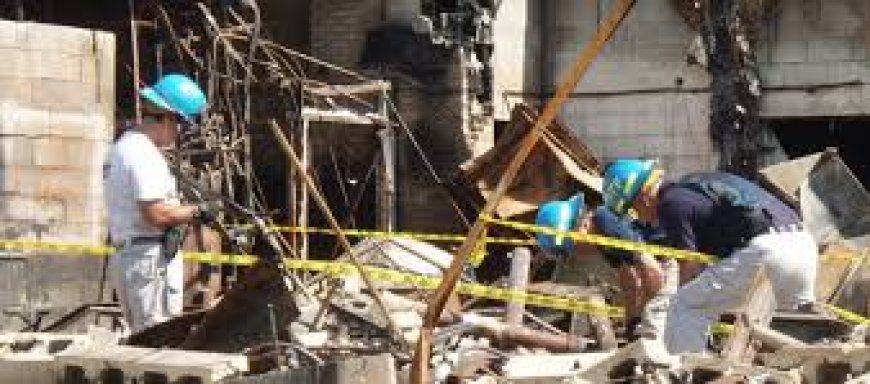The Future of Forensic Engineering in a Climate-Changing World
As the effects of climate change become increasingly evident across the globe, the role of forensic engineering is evolving rapidly. Once focused primarily on identifying failures caused by material fatigue, poor construction practices, or design flaws, forensic engineers are now called upon to investigate incidents triggered or accelerated by environmental extremes.

As the effects of climate change become increasingly evident across the globe, the role of forensic engineering is evolving rapidly. Once focused primarily on identifying failures caused by material fatigue, poor construction practices, or design flaws, forensic engineers are now called upon to investigate incidents triggered or accelerated by environmental extremes.
From floods and wildfires to hurricanes and heatwaves, climate-related disasters are pushing structures beyond their original design intentions. In this changing landscape, forensic engineering is not just about learning from past failures—it's about helping us adapt to a more unpredictable future. Learn More
Climate Change: A Catalyst for Structural Failures
Extreme weather events are no longer rare. In fact, they're becoming the norm. Buildings, bridges, and infrastructure systems designed decades ago were often based on historic weather patterns and outdated assumptions about risk. Today, these structures are being tested in ways their original engineers never envisioned.
Examples include:
-
Increased rainfall leading to slope instability and foundation failures.
-
Higher wind speeds causing roof and facade damage in coastal areas.
-
Wildfires weakening structural steel and compromising concrete strength.
-
Freeze-thaw cycles accelerating the degradation of roads and bridges.
Forensic engineers play a critical role in investigating these incidents—determining what failed, why it failed, and whether climate factors contributed to or exacerbated the damage.
New Tools for a New Era
To keep up with these evolving challenges, forensic engineers are incorporating advanced technologies into their investigative process. These include:
-
Remote sensing & drone mapping to assess damage in hazardous zones.
-
Climate modelling to simulate environmental loads on failed structures.
-
AI-powered diagnostics that predict where future failures may occur based on climate data.
By leveraging these innovations, forensic experts are not only identifying root causes with greater accuracy but also providing insights that inform more resilient designs.
Bridging the Gap Between Engineering and Resilience
Beyond failure analysis, the future of forensic engineering lies in resilience-building. Findings from forensic investigations are increasingly used to revise building codes, improve risk assessments, and shape policies that address the realities of a warming planet.
This is particularly important for:
-
Municipalities updating infrastructure in vulnerable zones.
-
Insurance companies recalibrating risk models.
-
Construction firms implementing more adaptive designs.
Forensic engineers are becoming strategic partners in shaping the built environment’s response to climate change—turning disasters into data-driven opportunities for prevention.
Educating the Next Generation of Forensic Engineers
To meet growing demand, there’s a pressing need to train forensic engineers in climate-informed investigation techniques. This includes understanding meteorological data, geotechnical risk, hydrology, and environmental stressors.
Institutions and firms that invest in interdisciplinary education will lead the way, ensuring future experts are well-equipped to investigate climate-related failures and advise on sustainable design.
Final Thoughts
In a climate-changing world, the role of forensic engineering is more critical than ever. It’s no longer just about understanding what went wrong—it’s about anticipating what could go wrong next. Through science, technology, and collaboration, forensic engineers are guiding us toward a safer, smarter, and more sustainable future.














































































